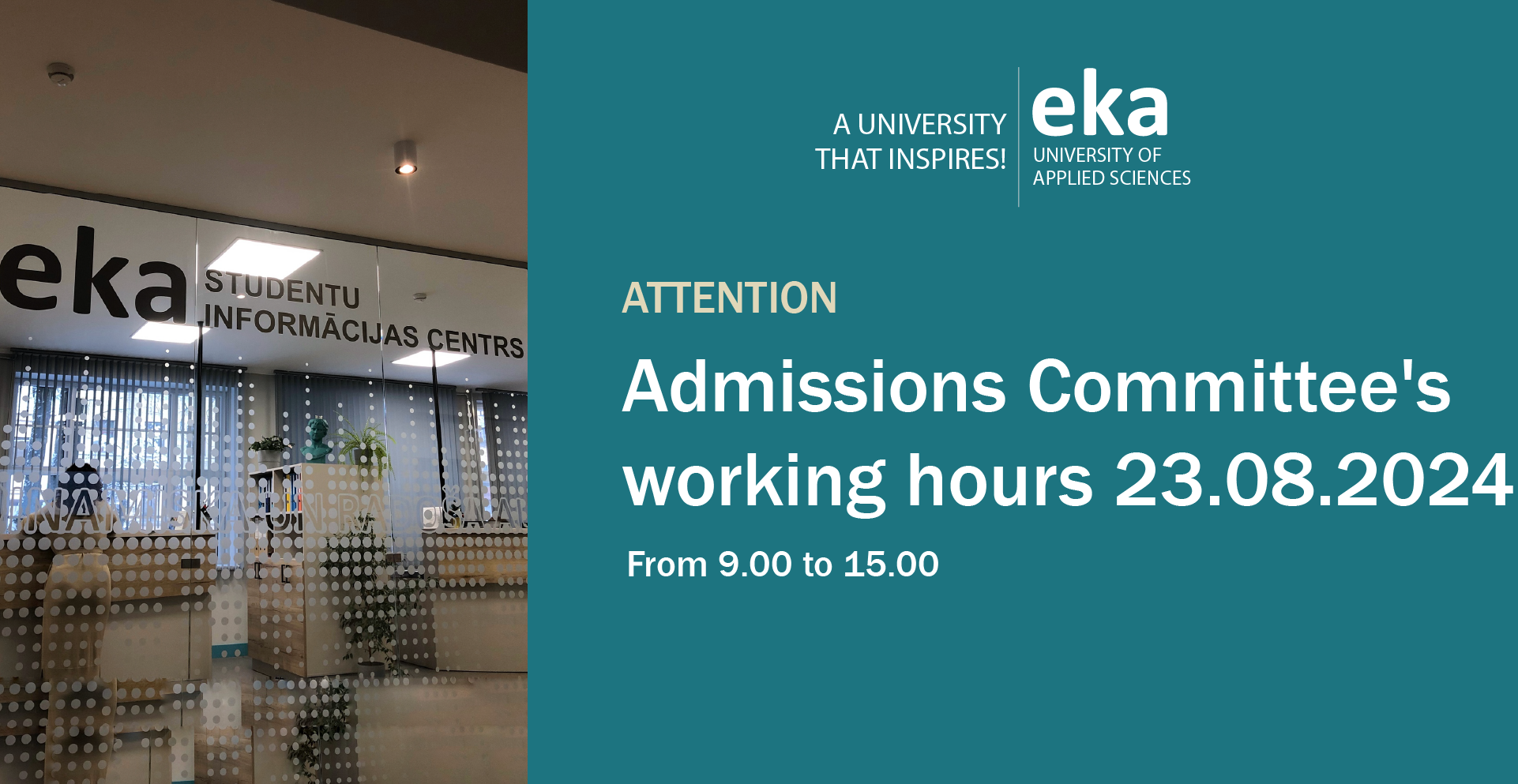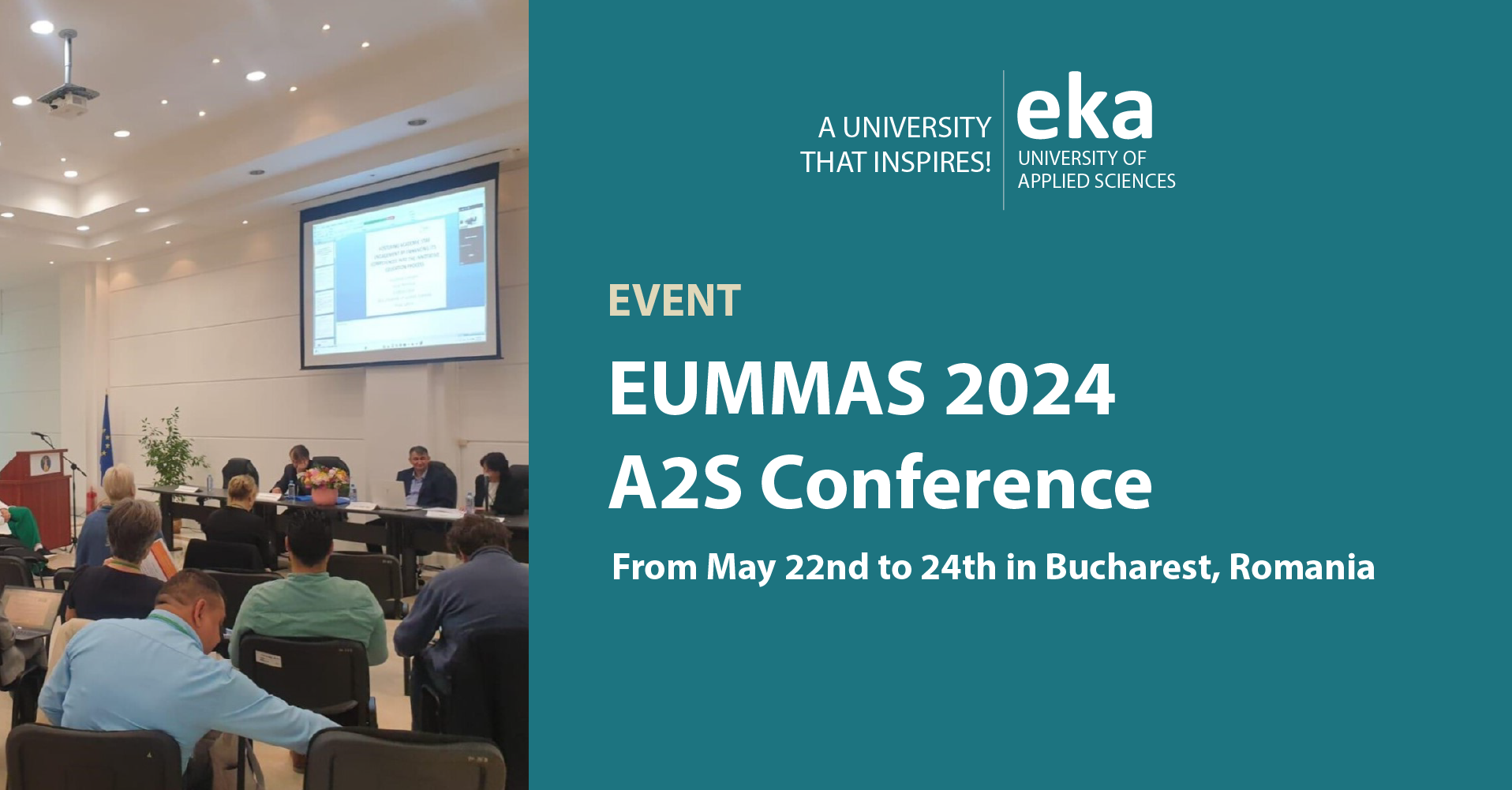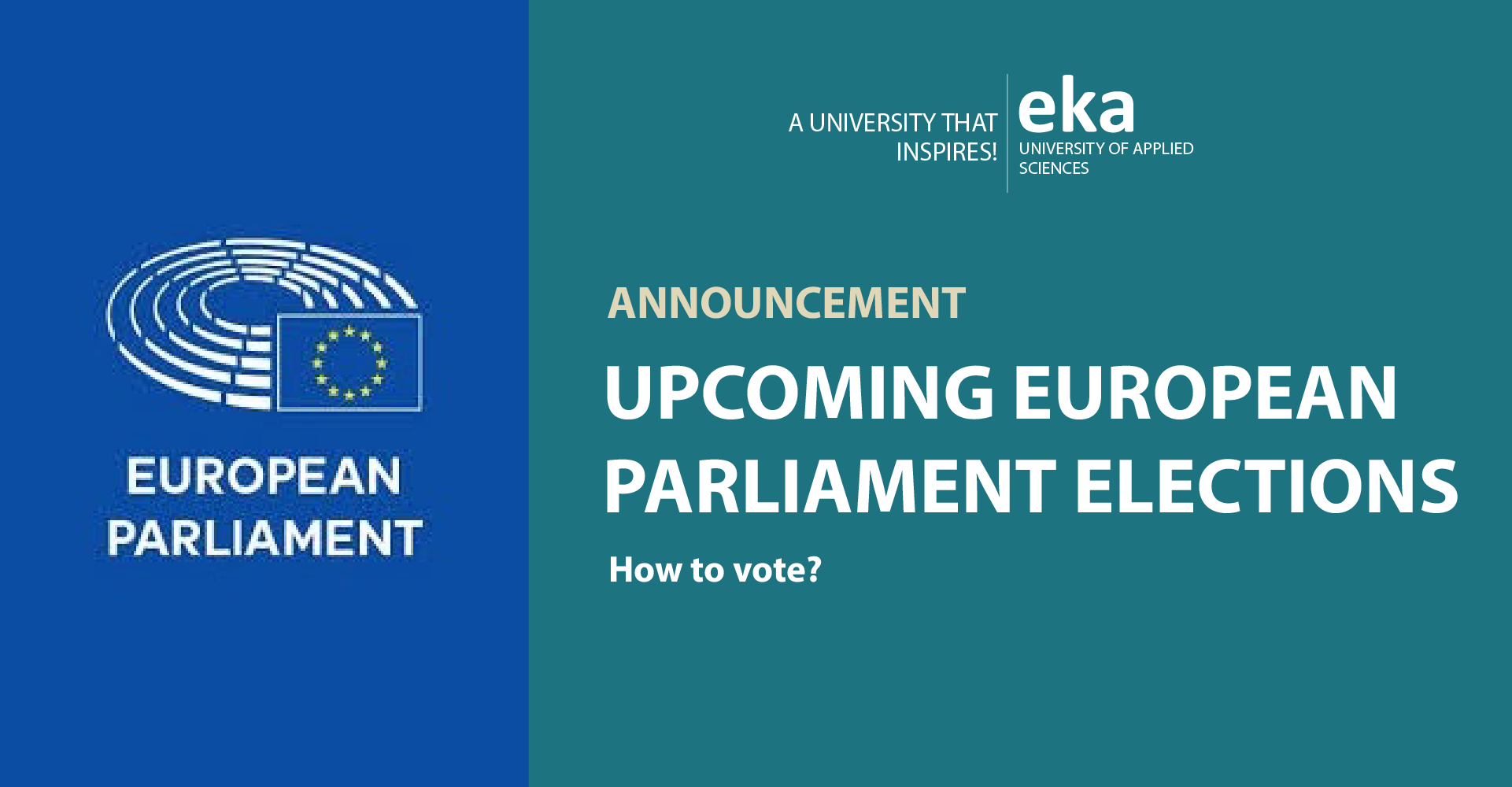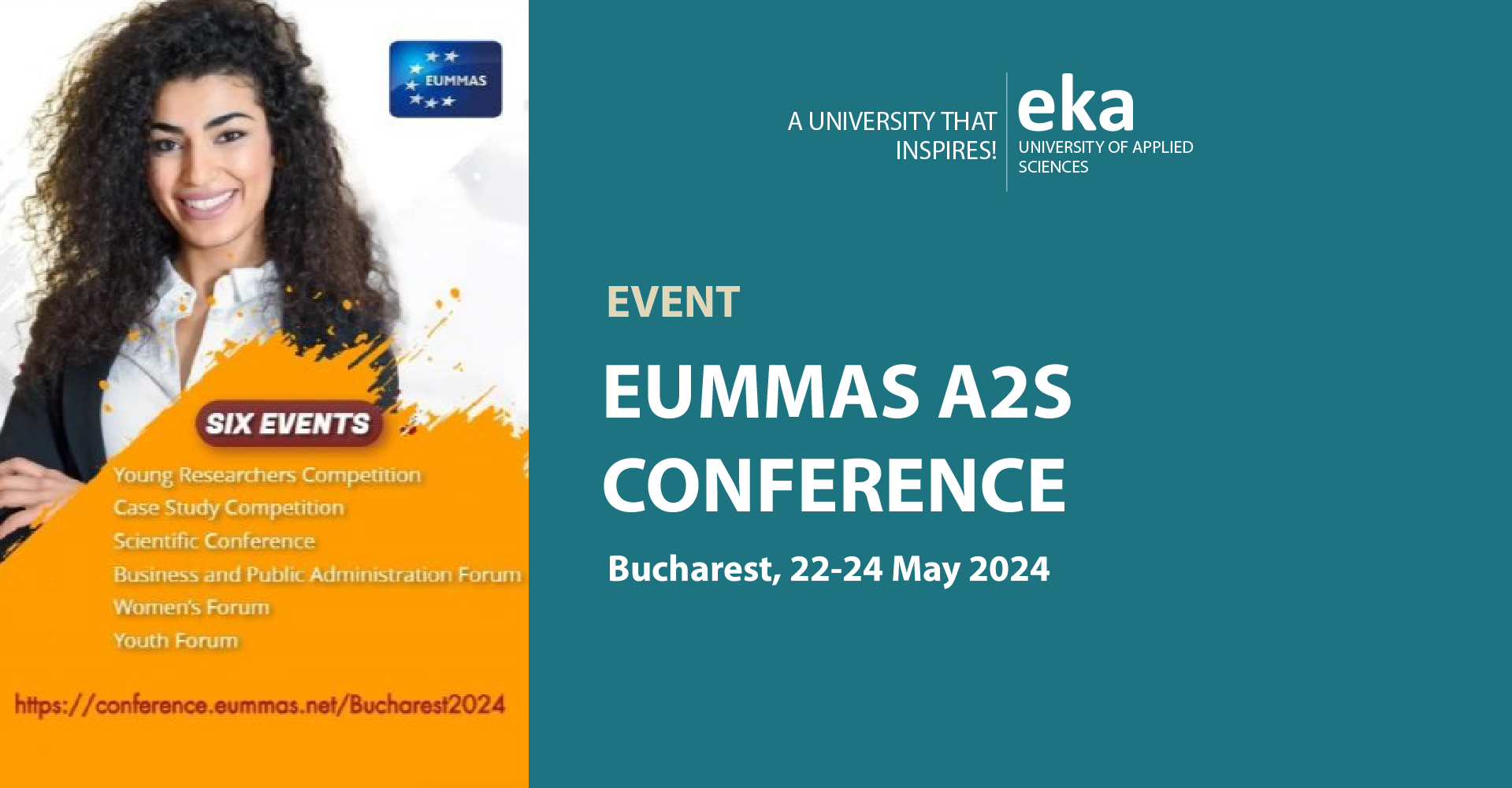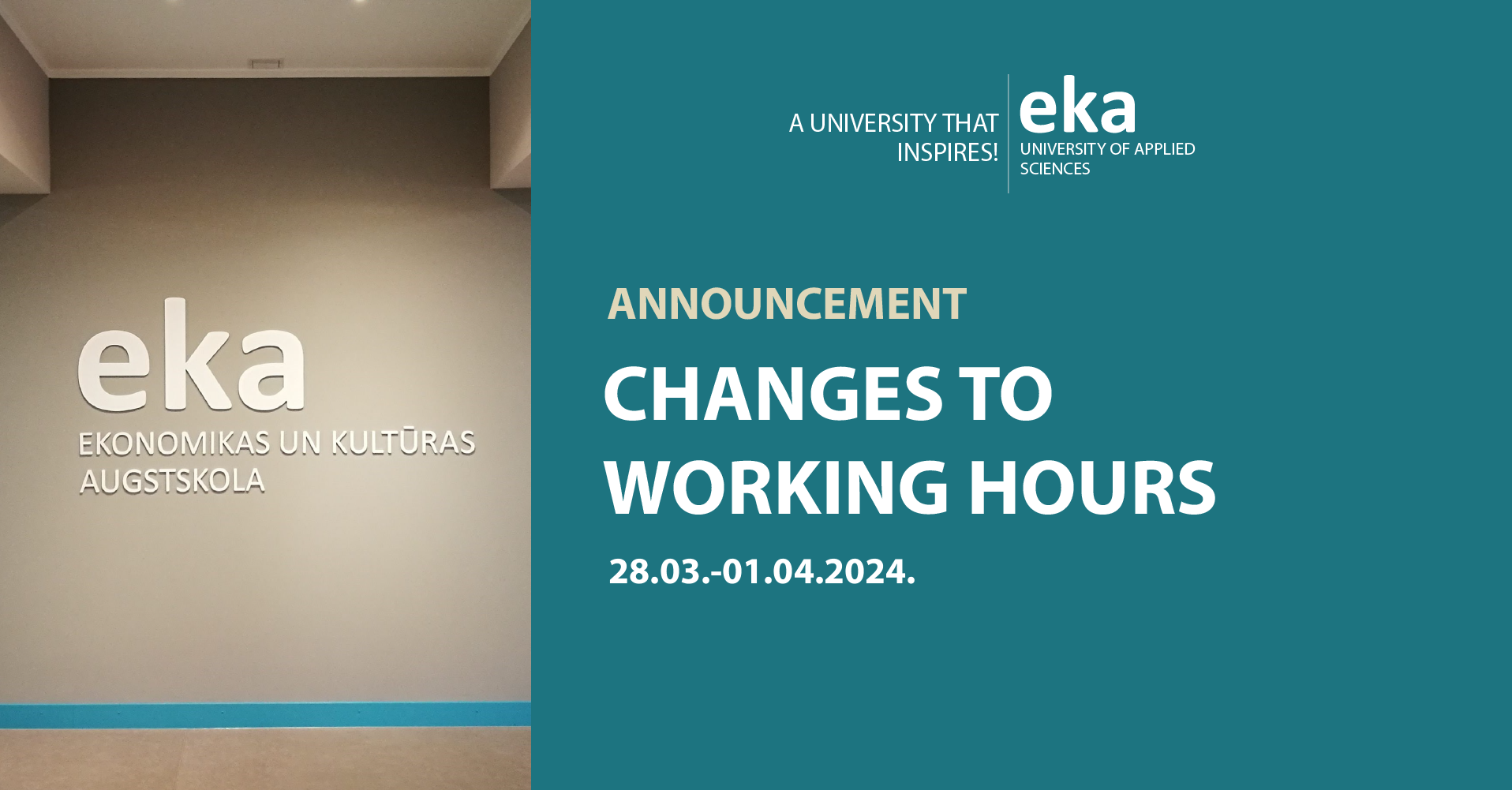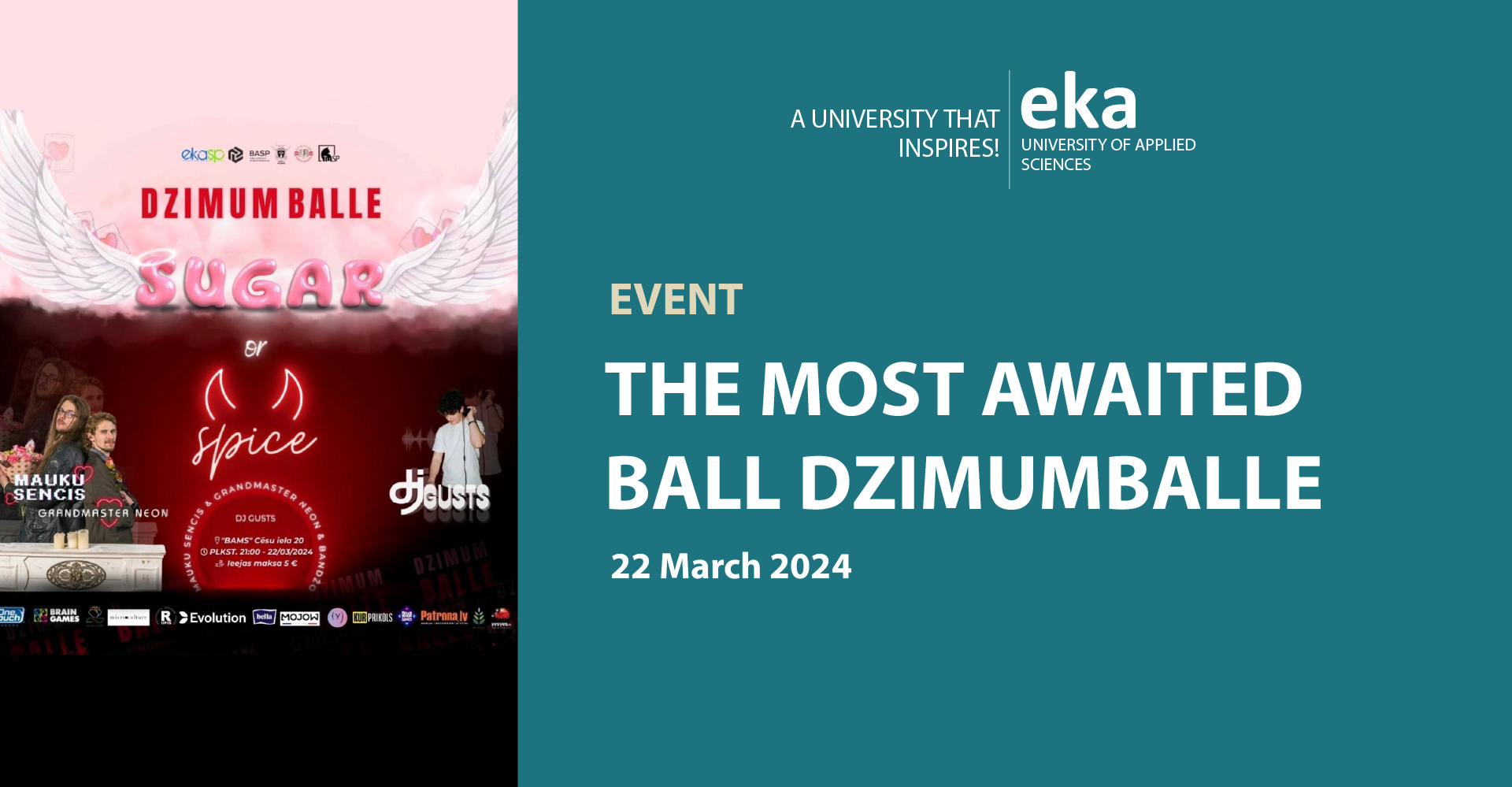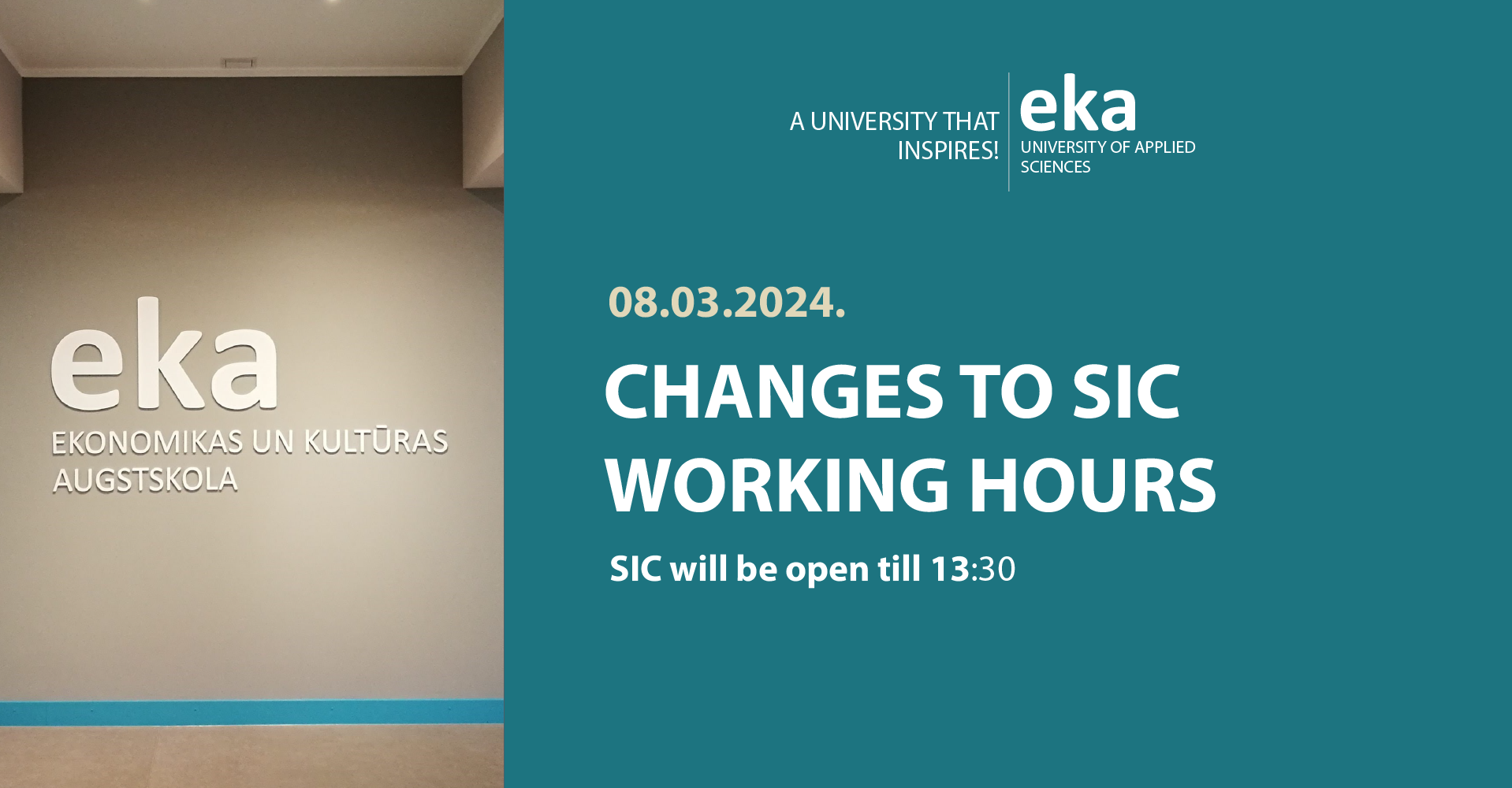
Professional Bachelor level programme
INFORMATION TECHNOLOGIES (PROGRAMMING)
Degree and Professional Qualification to Be Achieved:
Professional Bachelor Degree in Computer Science and Programming Engineer
Accreditation:
study programme Information Technologies is accredited until December 7, 2029.
Enrollment Criteria
- A general secondary education diploma
- First level professional higher education for those entering the program at a later stage
- English level B2 or International English language certificate:
TOEFL iBT – 72+
TOEFL PBT (paper-based test) - 513+
IELTS - 5.5 - 6.0
TOEIC – 605+
FCE (First Certificate in English) – 160+
CAE (Cambridge Certificate of Advanced English) – 160+
CPE (Cambridge Certificate of Proficiency in English) - 160+
Cambridge English: Business Vantage (BEC Vantage) – 160+
Pearson Test of English Academic (PTE A) – 59+
Cambridge English Linguaskill – 160+ Duolingo - 100+
Admission reguirements for foreign students are available HERE.
Study programme aims and objectives
Aims:
- to provide students with a set of knowledge, skills and competence in IT according to the 6th level of the framework defined in the Latvian education classification;
- train programming engineers for professional information technology industry, whose knowledge, skills and abilities meet the demands of modern labour market.
Objectives:
- ensure a process of study meeting the requirements of legislation, labour market and occupational qualifications, as well as the targeted access of students to higher education;
- to promote qualification development of the teaching staff in educational and scientific fields;
- to provide and develop research activities in the study programme;
- to provide and develop infrastructure and facilities under the study programme implementation needs;
- to develop international collaboration with related higher education institutions, enterprises and organizations.
Programme Content
Industry professional specialization courses
- Data structures and algorithms
- Computer graphics and image processing basics
- Programming
- Software development technology
- Software engineering
- Project work
- Information systems design
- Mathematical logic
- Mobile applications development
- System modelling basics
- Information systems, safety and management
- WEB Programming
- WEB content management systems
- XML tehnologies
Theoretical basics of industry and information technology courses
- Computer systems organization and architecture
- Computer networks
- Database technologies
- Application software
- Artificial intelligence
- The operating systems
- Research project organization
- Programming
- Software development project management
- Study paper
- Probability theory and mathematical statistics
The mainstream study courses
- Higher mathematics
- Labour, the environment and civil protection
- IT industry legislation and standards
- Exchange of business information
- Business Communication and Professional Ethics
- Presentation skills
- Foreign languages in computer science
- Entrepreneurship basics
Learning outcomes of the study programme
Knowledge (knowledge and understanding):
- knows the programming principles, methods and regularities;
- manages information technology industry standards and terminology.
Skills (ability to apply knowledge, communication skills, general skills):
- is capable of developing information technology computer systems;
- is capable to build data conceptual model and physical model;
- is able to configure, develop, implement and maintain the environment and software;
- is able to conduct research activities on current events in the field of information technology;
- can discuss about topical issues concerning ICT providing arguments;
- is able to independently organise their work;
- is able to work in a team.
Competence (analysis, synthesis, evaluation):
- is able to acquire, analyse, evaluate and systematize information;
- can find solutions to the problems found in the organization′s computer systems and software.
Standard period of studies
Full time studies (4 years)
Lectures on working days, usually 09:00 - 15:50
Leading lecturers
Director of the Study Programme: Jurijs Radionovs
Email: jurijs.radionovs@eka.edu.lv
Julija Asmuss, Dr. Sc. Ing., assistant professor
Research interests: telecommunication networks
From 2016 Expert of Latvian Council of Science in the field of Electronics and Telecommunications.
Senior Expert in State Education Development Agency.
Mārcis Pinnis, Dr. Sc. Comp., assistant professor
Researcher SIA Tilde. Main activities and responsibilities: research and development of new language technologies, participation in Europe-wide research projects, dissemination of research results.
Mārcis hasMaster’s of Philosophy Degree in Computer Speech, Text and Internet Technology from St. Edmund’s College (Faculty of Computer Science and Technology, University of Cambridge, Cambridge, United Kingdom and PhD in Computer Science (Dr.sc.comp.) from University of Latvia, Riga, Latvia. Title of PhD thesis: “Terminology Integration in Statistical Machine Translation”
Dmitrijs Finaškins, Mg. Sc. Ing., lecturer
Has professional experience in projects of telecommunication networks configuring and maintenance, programming for cluster data analysis.
Research interests: management of recourses of telecommunication network, data analysis.

